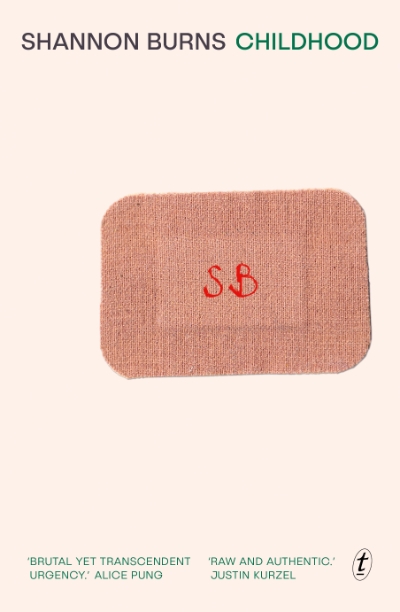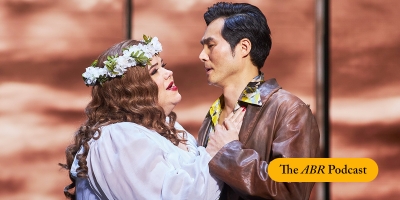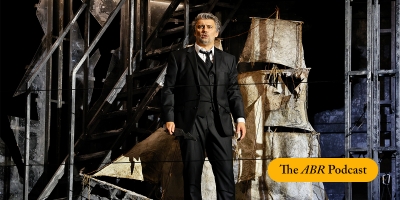Peter Rose
There are times when the act of editorialising seems reckless, if not otiose. Any such column, written on 20 September, runs the dual risk of belatedness – or prematurity. So appalling were the events of 11 September, and so ominous their ramifications, no one can be confident of the likely international developments in coming weeks, days, or even hours. All we can do at ABR is to sympathise with the families of those killed in New York, including a number of Australians, while also following events and covering the issues and inevitable publications in these pages.
... (read more)Few opera composers were more prolific than Gaetano Donizetti, and 1833 proved to be no exception in his relatively short career, with four separate premières in as many cities, culminating in Lucrezia Borgia, first heard at La Scala on 26 December. That season ran for thirty-three performances. The opera went on to become a popular vehicle for prima donnas (some nearing the end of their careers). Melbourne Opera’s reliably good program informs us that Lucrezia had its Australian première at Melbourne’s Theatre Royal in 1855 and remained popular for forty years, becoming Donizetti’s most performed opera in Victoria after Lucia di Lammermoor.
... (read more)The forbearance of those writers who entered the Australian Book Review and Reader’s Feast Short Story Competition has been as exemplary as their commitment to short fiction. I am pleased to be announce the shortlist:
Ian McFarlane: ‘A Balance of Probabilities’
Katarina Mahnic: ‘Flying Recipe’
B.E. Minifie: ‘There Has to be a Resemblance’
Carrie Tiffany: ‘Dr Darnell’s Cure’
Susan Yardley: ‘The End Is Where We Start From’
... (read more)ART
Contemporary Aboriginal Art: A guide to the rebirth of an ancient culture
by Susan McCulloch
Allen & Unwin, 248 pp, $39.95 pb
1 86508 305 4
Contemporary Aboriginal Art (first published in 1999) contains a wealth of information for those interested in the history, practice, and culture of Aboriginal art. By its very nature, Aboriginal art is constantly changing and evolving, and, in this revised edition, Susan McCulloch details new developments in already well-established communities, and the emergence of some entirely new movements. McCulloch, visual arts writer for The Australian, has travelled extensively to the Kimberley, Central Australia, Arnhem Land and Far North Queensland, and her book provides first-hand accounts of Aboriginal artists and the works they are creating.
Beautifully illustrated, Contemporary Aboriginal Art also contains a comprehensive directory of art centres and galleries, a buyer’s guide, and a listing of recommended readings.
... (read more)Based on Antonio Garcia Gutierrez’s El Trovador, a romantic melodrama set against the backdrop of a fifteenth-century Spanish civil war, Giuseppe Verdi’s Il Trovatore has been described as the ‘apotheosis of the bel canto opera, with its demands for vocal beauty, agility and range’. Yet in what is also his darkest and most death-haunted work, Verdi invests the brightness and vocal embellishments of bel canto with greater dramatic tension ...
... (read more)Whenever you hear a good performance of any one of at least half a dozen operas by Giuseppe Verdi, it’s tempting to think: this surely he can never have surpassed. Il Trovatore, from his fecund middle phase, is one such opera. But then one recalls La Traviata and Don Carlo and Otello – on the list goes – and simply marvels at the variety and richness of his oeuvre.
... (read more)Conceived during a holiday in the spa-town of Marienbad, Lohengrin stands at the crossroads of Richard Wagner’s operatic oeuvre: it was the last work composed before his political exile (as a result of his participation in the Dresden Uprising) while offering a glimpse of the leitmotivic technique that would become the signature of his late style.
... (read more)2 am. Prompter than usual. Nocturnal emails, / a commonplace book to aphorise – fillipia! / I write to someone in Oxford, then Wagga, / pondering the etiquette of commissioning / in the middle of the night.
... (read more)Not long before the 1845 première of Tannhäuser, Richard Wagner was holidaying at the spa of Marienbad. He had with him a copy of the anonymous German epic Lohengrin, and he was possessed. Ever the sensualist, he described the impact in luxurious terms:
... (read more)






